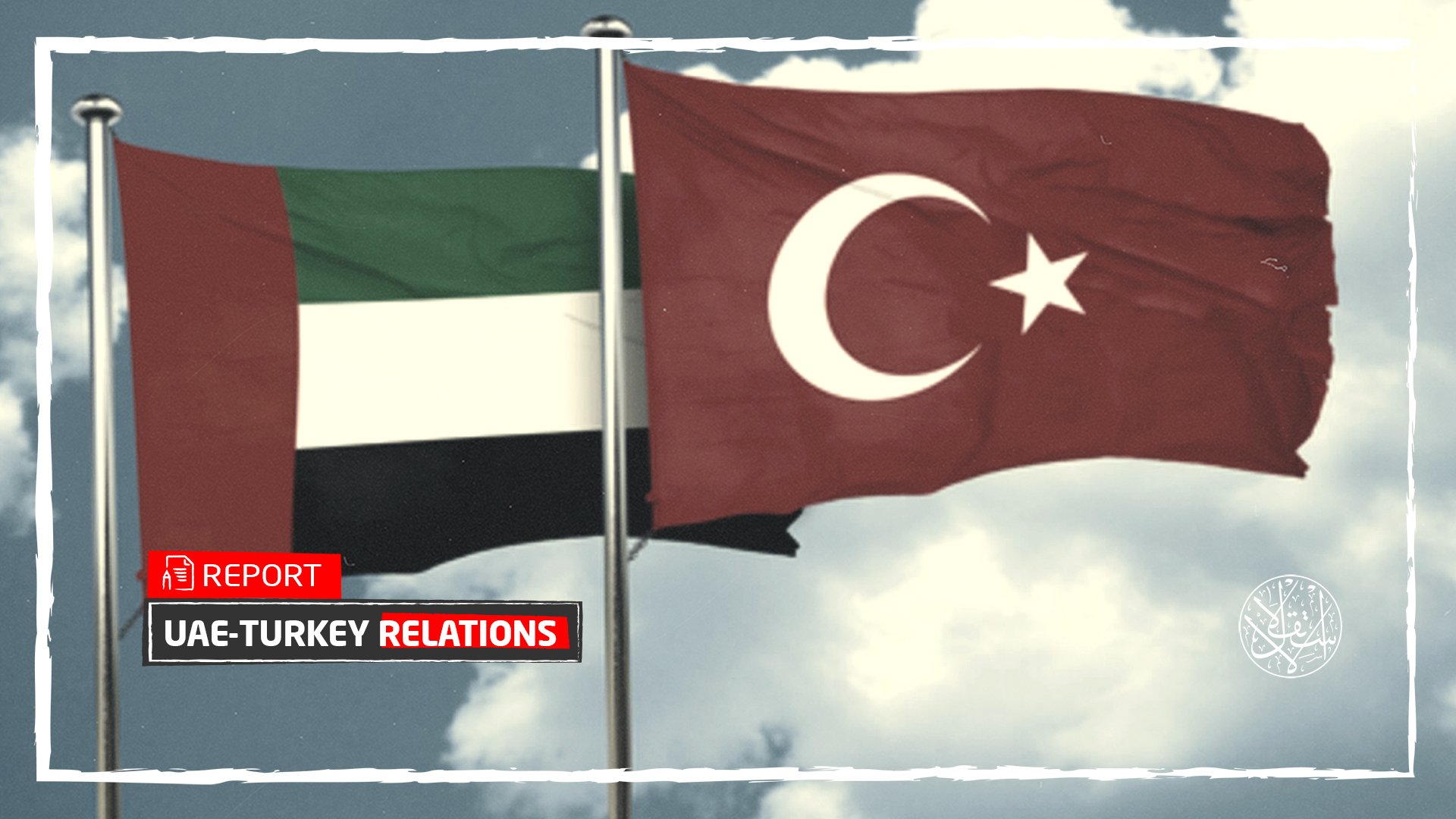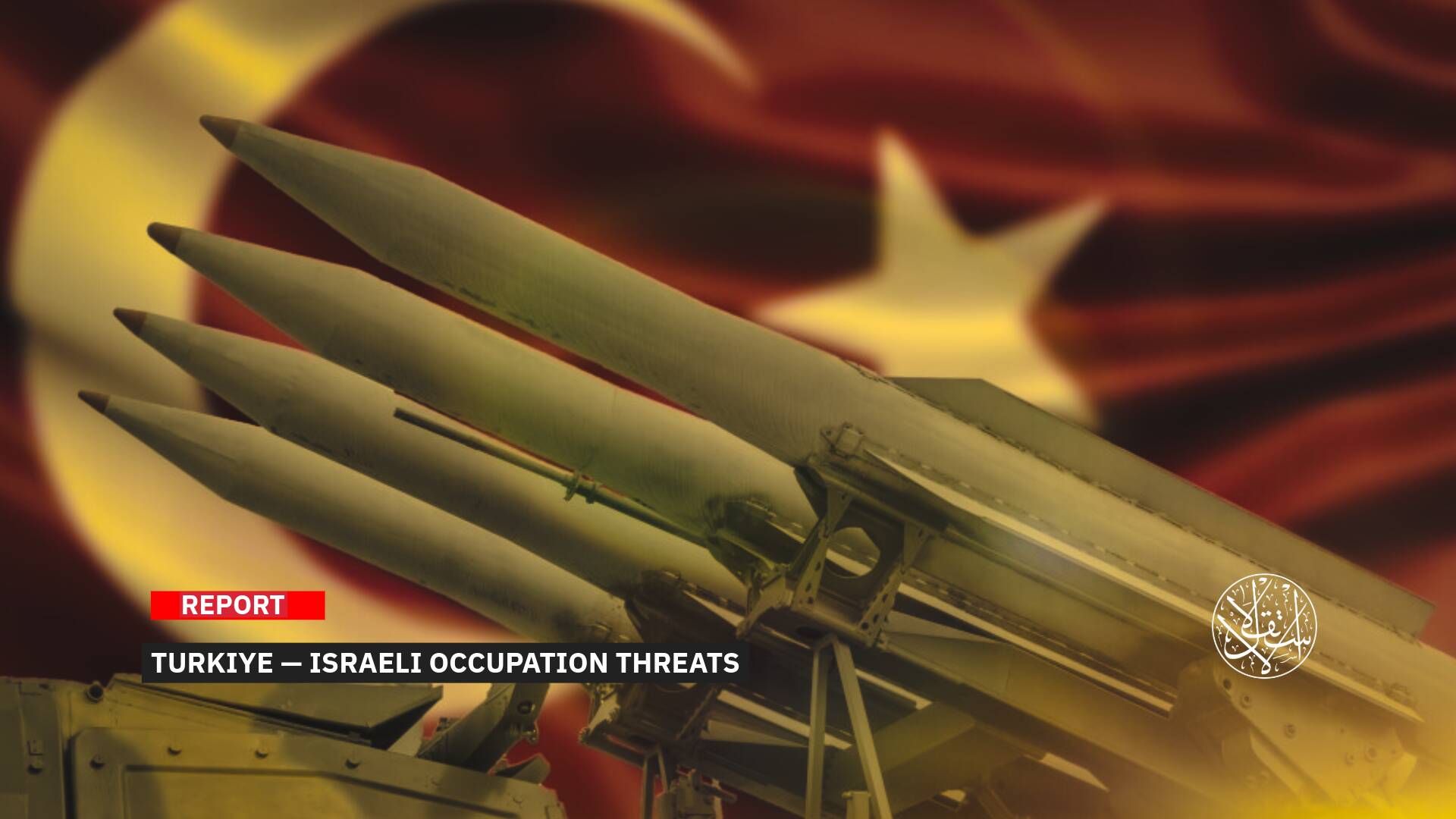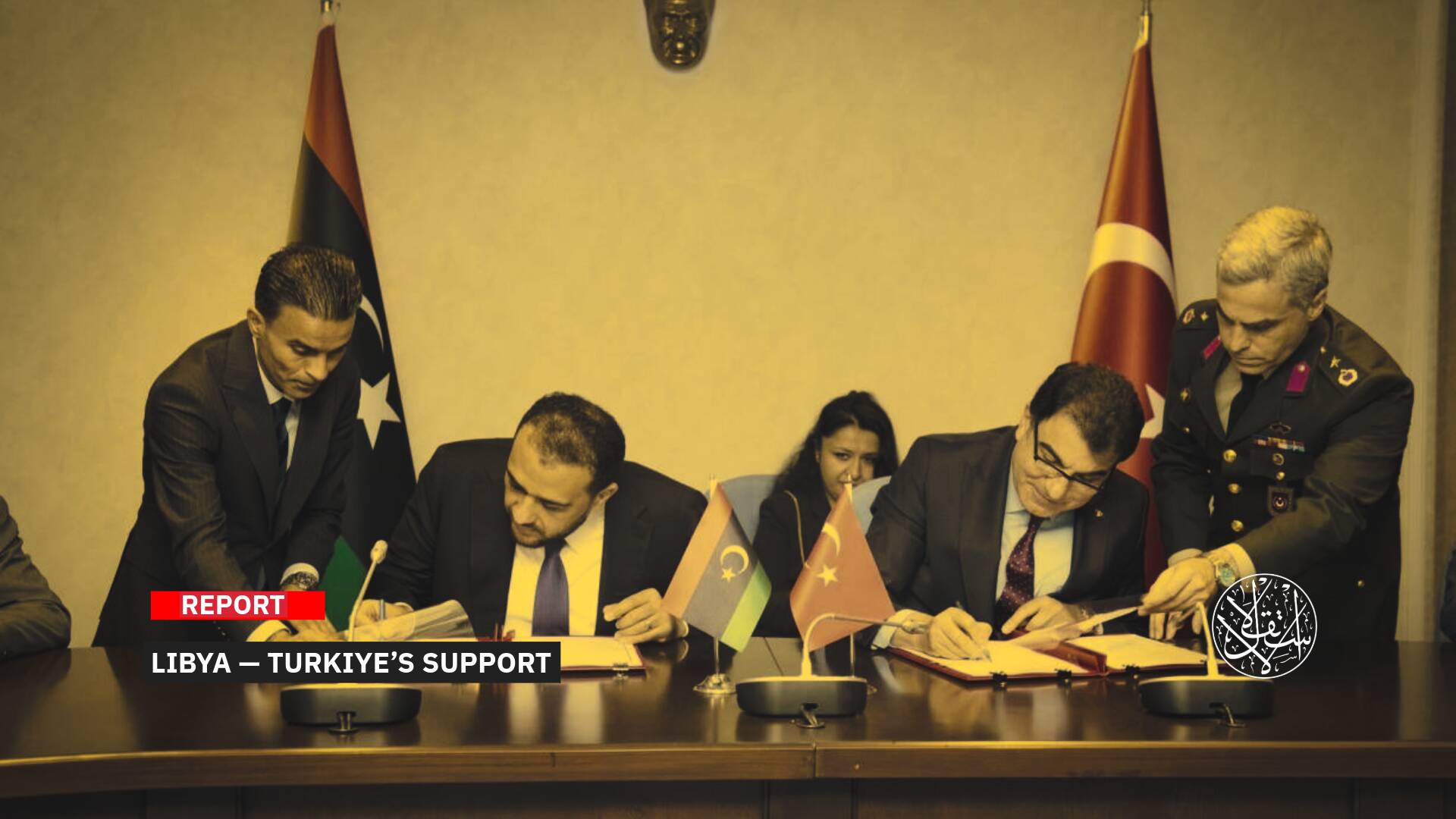Because of Common Interests, UAE and Turkey Could Become Friends Again

“We don't want Turkey or Qatar to be able to make a menu, not even build a country," said the UAE's ambassador to Washington, Yousef Al-Otaiba, in a letter to a prominent New York Times Writer.
This phrase, which was leaked by the British Middle East website as part of a series of leaks in 2018, clearly expresses the extent of Abu Dhabi's true feelings of hostility to Ankara.
Today, however, the situation is changing. After years of entrenched hostility, the visit of Tahnoun bin Zayed, the envoy of Abu Dhabi Crown Prince Mohammed bin Zayed, to Turkish President Recep Tayyip Erdogan, and their positive statements, raised questions about the reasons for the radical changes and the UAE’s retreat from its previous orientations and attempts to melt the ice.
Agreement Graders
On August 18, 2021, the Turkish Presidential Complex in Ankara opened its doors to receive a high-ranking Emirati delegation, headed by National Security Adviser Tahnoun bin Zayed Al Nahyan, a visit that reinforced the emergence of a different reality of diplomatic contacts between the two countries.
After the rare meeting with the Emirati official, Turkish President Recep Tayyip Erdogan said that Ankara and Abu Dhabi have made progress in their relations, which could lead to large Emirati investments in Turkey.
He went even further when he talked about the prelude to discussions with Mohammed bin Zayed Al Nahyan and expressed the hopes of the rulers of Abu Dhabi for closer relations between the two countries.
This is what actually happened on August 30, 2021, after years of rivalry between Turkey and the UAE, where Bin Zayed made contact with Erdogan.
The Emirates News Agency, WAM, announced that bin Zayed discussed bilateral relations by phone with the Turkish president.
It added that this contact was about discussing bilateral relations and ways to enhance and develop them to serve the common interests of the two countries and their friendly peoples.
On September 7, 2021, Turkish Foreign Minister Mevlut Cavusoglu said that Ankara "sees positive momentum in talks with the UAE."
"Relations between Turkey and the UAE can be normalized, if mutual steps are taken, and the conditions are appropriate," Cavusoglu told the Turkish channel NTV.

Signs of improving relations began in April 2021, with the publication in Turkey's Official Gazette of a decision signed by Erdogan appointing 13 new ambassadors to a number of European, Asian, and African countries, including the appointment of Togay Tuncer as the new Turkish ambassador to the UAE.
Ankara had previously threatened, through the President of the Republic, to withdraw the ambassador, when Abu Dhabi signed the normalization agreement with the Israeli occupation in 2020.
Erdogan said at the time: "We asked our Foreign Minister (Cavusoglu) to discuss the possibility of suspending diplomatic relations with Abu Dhabi or even withdrawing the Turkish ambassador, because we stand with the Palestinian people and we cannot abandon Palestine," noting at the time that "it is not possible to accept the agreement between Israel and the UAE."
Reasons for Distancing
The relationship had gone through difficult stages that began after the Arab Spring revolutions in 2010, with Ankara siding with the new players in the region, while Abu Dhabi went to lead the axis of the counter-revolution and military coups.
The main reason was the transition to the stage of direct rivalry on July 3, 2013, when the head of the Egyptian regime, Abdel Fattah al-Sisi in Egypt, overthrew the rule of the late President Mohamed Morsi, under full Emirati sponsorship, which Turkey rejected in form and content.
Years of stampede between the two authorities passed on more than one stadium at the same time, from Libya to Idlib in Syria to Karabakh in Azerbaijan, in addition to the game of biases of the quarrelsome regional axes.
The UAE sided with the axis of Israel and some countries in the eastern Mediterranean, in defiance of Turkey, and the latter went to the axis of supporting Qatar and the poles resentful of Abu Dhabi's policies.
Therefore, the beginning of the return of water to its courses was interesting and questions, which was refuted by the Mauritanian political researcher, Mohamed Haidara, when he wrote on his Facebook page on August 31, 2021, saying: “Turkey has been able during the past few years to prove that it is a real regional player in the area.”
He continued, "From Azerbaijan to Somalia, from Syria to the Gulf (Qatar), through Iraq, Libya and North Africa, in these mentioned countries, Turkish military bases are stationed, which changed the equations of the conflict. Turkey is still urging efforts in preparation to fill the void that began to loom with successive US withdrawals."
He added: "After its defeat in Libya, the failure of the blockade of Qatar, the problems with Saudi Arabia in Yemen, the failure of the normalization campaign after the Battle of Saif al-Quds (in Gaza in May 2021), its revival of the Palestinian cause, and its exit from Afghanistan, it needs a break and calm in which it catches its breath after 8 years from leading counter-revolutionary wars.”
He said, "The Emiratis are credited with their intelligence, speed of movement, and their exploitation of events to take a turn in their foreign relations without much noise, and in this they outperform Saudi Arabia, which is still floundering in its foreign policy without a clear vision."
He concluded: "Currently, in the face of the challenge of 2023, Turkey (the Gulf states) really needs it on its side more than being its enemies. It is a matter of common interests between the two parties."
Convergence Factors
Journalist Muhammad Nour Farhoud wrote for the official Turkish website TRT on August 24, 2021, about the factors and motives for Emirati rapprochement with Turkey.
Farhoud said: “The changes that prompted the UAE to revive relations with turkey are represented in the departure of former US President Donald Trump and his son-in-law Jared Kushner from the administration of the White House, in addition to the departure of former Israeli Prime Minister Benjamin Netanyahu, who was the supporter of the Gulf state in the region, "and his departure constituted a crisis for Abu Dhabi."
He added, "Although the new Israeli administration is no better than Netanyahu, the nature of the alliance that the latter was leading with the UAE was more intense than it is now."
He explained, "In addition to these changes, the positive steps between Ankara and Cairo were on the path to resolving the differences between the two countries, as well as the situation between Ankara and Athens heading towards a positive path to address the Eastern Mediterranean crisis, and all of this pushes the UAE to recalculate and imposes on it fears that it will remain in isolation."
The stages of the rivalry between Turkey and the UAE have reached such an extent that the latter allied itself with Israel directly to limit Ankara's progress.
In January 2019, the British Middle East Eye website revealed that the director of the Israeli Mossad at the time, Yossi Cohen, met with Emirati officials to discuss ways to counter Turkey's influence in the region.
In a report written by editor-in-chief David Hearst, the website confirmed that the UAE and Egypt hatched a plan with Tel Aviv in preparation for the return of Syrian President Bashar al-Assad to the Arab League in order to marginalize the regional influence of Turkey and Iran.
The most dangerous thing that the website revealed was what the officials agreed upon during the meeting regarding Turkey as their main military opponent in the region, not Iran, and then they discussed the necessary plans to curb Turkish influence.
The website stated that the director of the Israeli Mossad said during the meeting: "Iranian power is fragile, but the real threat comes from Turkey."
The Israelis believe that "Iran can be contained militarily, but Turkey has great capabilities that are difficult to deal with easily."
Today, after the failure to contain Turkey, and its military and strategic progress on more than one axis, the UAE has seen that the other solution lies in communication and resolving the crisis through talks and discussions.
Sources
- Turkish-Emirati relations; The motives and consequences of rapprochement [Arabic]
- Erdogan talks about 'progress' after a rare meeting with the UAE [Arabic]
- After Erdogan received bin Zayed's advisor, are Turkish-Emirati relations close to normalization? [Arabic]
- After the deterioration of its relations with several countries, will the UAE succeed in reforming the past? [Arabic]
- The Crown Prince of Abu Dhabi calls Erdogan for the first time since the UAE-Turkish relations soured [Arabic]










